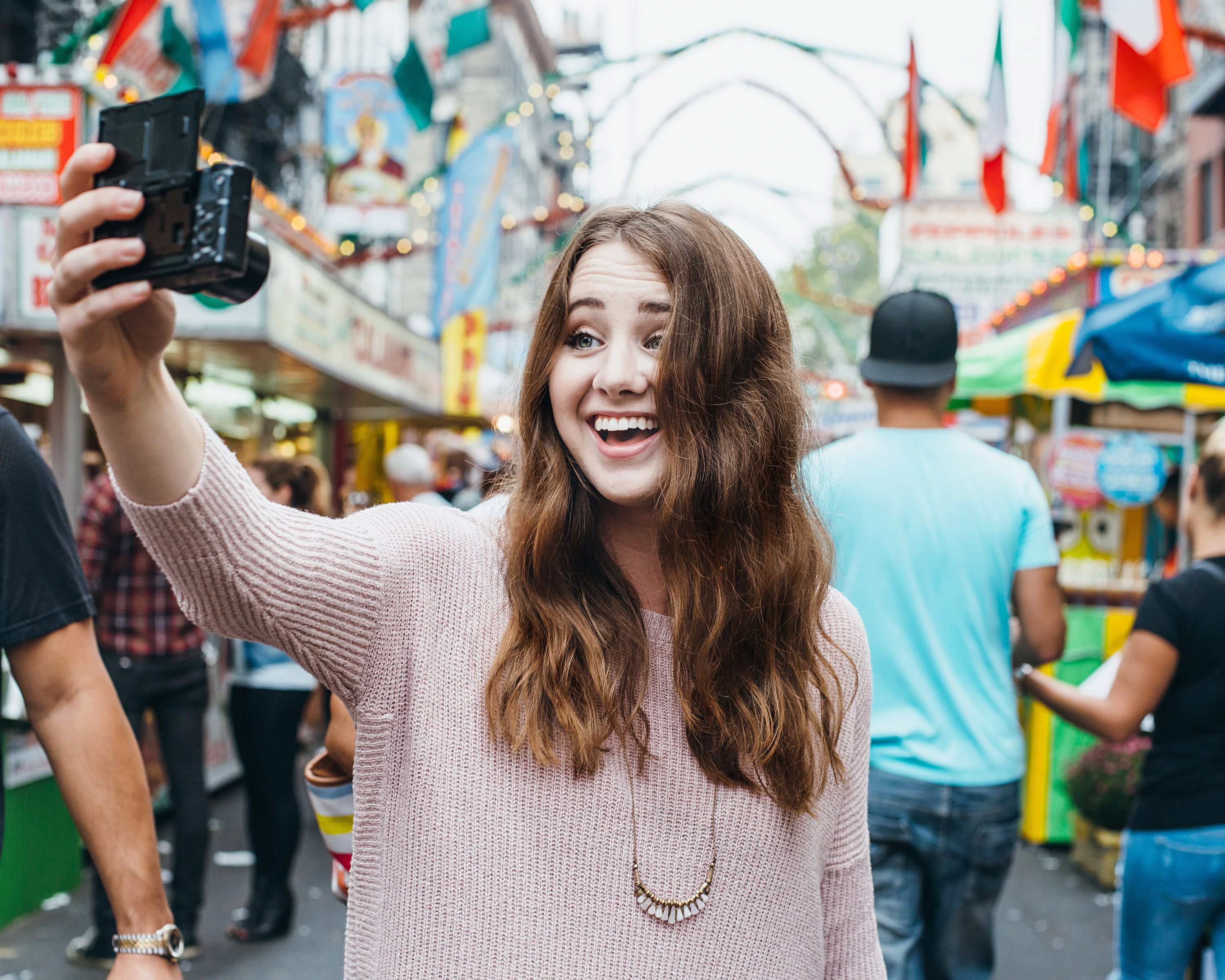
- Interview by Tina Essmaker September 27, 2016
- Photography by Julia Hembree
Sara Dietschy
- filmmaker
Dallas-born, NYC-based filmmaker and YouTuber, Sara Dietschy, tells the story of shooting for her dreams with no regrets, including dropping out of college after she realized she was already living her plan B at age 21, finding a career path she loves that actually loves her back, and choosing to remain open to what the future holds.
This digital feature is in partnership with our friends at Adobe to highlight the Adobe Creative Residency, a program that empowers talented individuals to spend a year focusing on a passion project while sharing their experience and process with the creative community.
I want to start at the beginning of your story. Where did you grow up and how was creativity part of your early life? I was born and raised in a suburb of Dallas. Creativity wasn’t a huge part of my life until high school. Before that, I was really into sports. Growing up, I was the tomboy who played football with the guys at the park. Then I got into basketball, which became my life.
Once I got into basketball, I also started playing guitar. During my freshman year of high school those two things collided. I tried out for basketball and planned for that to be my life, but I also fell head over heels for guitar. I became involved in playing guitar at my church and in a band in the Deep Ellum music scene. If you’ve never been to Dallas, Deep Ellum is a sketchier part of Dallas, but it’s where all the clubs are. I was a 16-year-old who played in clubs and went to school the next day with an X on my hand because I couldn’t drink.
During high school, it was a battle between sports and music, and that’s when my creative side came into play. In my junior year of high school, I felt like I had to choose between basketball and music. It sounds silly now, but when I was in 8th grade, I wanted to get a basketball scholarship to college. But then I stopped growing and music became a bigger part of my life. I wanted time to play and put more energy into the music scene.
After I quit basketball, I poured everything into music. I got serious with my band and we released an EP. Our name was The Bad Habits. (laughing) I also stayed involved in playing guitar at church. In the music scene, there were a lot of people around me doing photo and video. That’s when I realized our band needed a music video, so I took it upon myself to do it.
I had been a big math and science geek in high school and when I went to college in 2012, I studied electrical engineering, partly because I thought I could make my own pedals and amps for playing. It turned out that I hated electrical engineering.
During that time, I had a similar transition to the one I had with basketball and guitar, except it was from music to video. I knew music would always be a huge part of my life, but it didn’t bring me the same joy that it used to. It became like a chore. In the meantime, I had gotten into video and had posted a few things to my YouTube channel, like random reviews for camera equipment. And people were actually watching the videos.
I stayed at home for college and went to the University of Texas at Arlington, so I worked a ton. Every penny went back into travel and camera equipment. I went to Greece, Iceland, and a lot of places around the US, like Nashville, which is why I ended up living there later. As I traveled, I made travel videos to post to YouTube. Then it became a thing. I loved it. I wondered how I could make it my job.
I was still in college, but I hated electrical engineering. I had this pull between, “I have to do something responsible,” and, “I love what I’m doing on the side, creativity-wise.” I felt like I had to finish college because it was the responsible thing to do, so I transferred to the computer science program, but I didn’t like that either.
At that point, I had a lot of side hustles and was really into video. December 2015 rolled around and I decided I could do video for a living. I knew I couldn’t make YouTube my job from the get-go, but if I had to do three years of boring film work to pay rent, I was willing to do it.
Let’s dissect some of the things you just talked about. You grew up in Dallas and went to school at UT Arlington. Did you decide to finish your degree or did you leave school? No, I dropped out. Because I changed majors, I lost some credits. I was in school for three and a half years, but it would have taken me almost two more to graduate. I actually did three years at UTA in Texas and one semester at Belmont in Nashville, but I don’t count Belmont because I was so gone by the time I enrolled. With three weeks left, I sent emails to my teachers to say I probably wouldn’t be back because I had video opportunities that I wanted to spend more time on.
“Creativity wasn’t a huge part of my life until high school. Before that, I was really into sports. Growing up, I was the tomboy who played football with the guys at the park.”
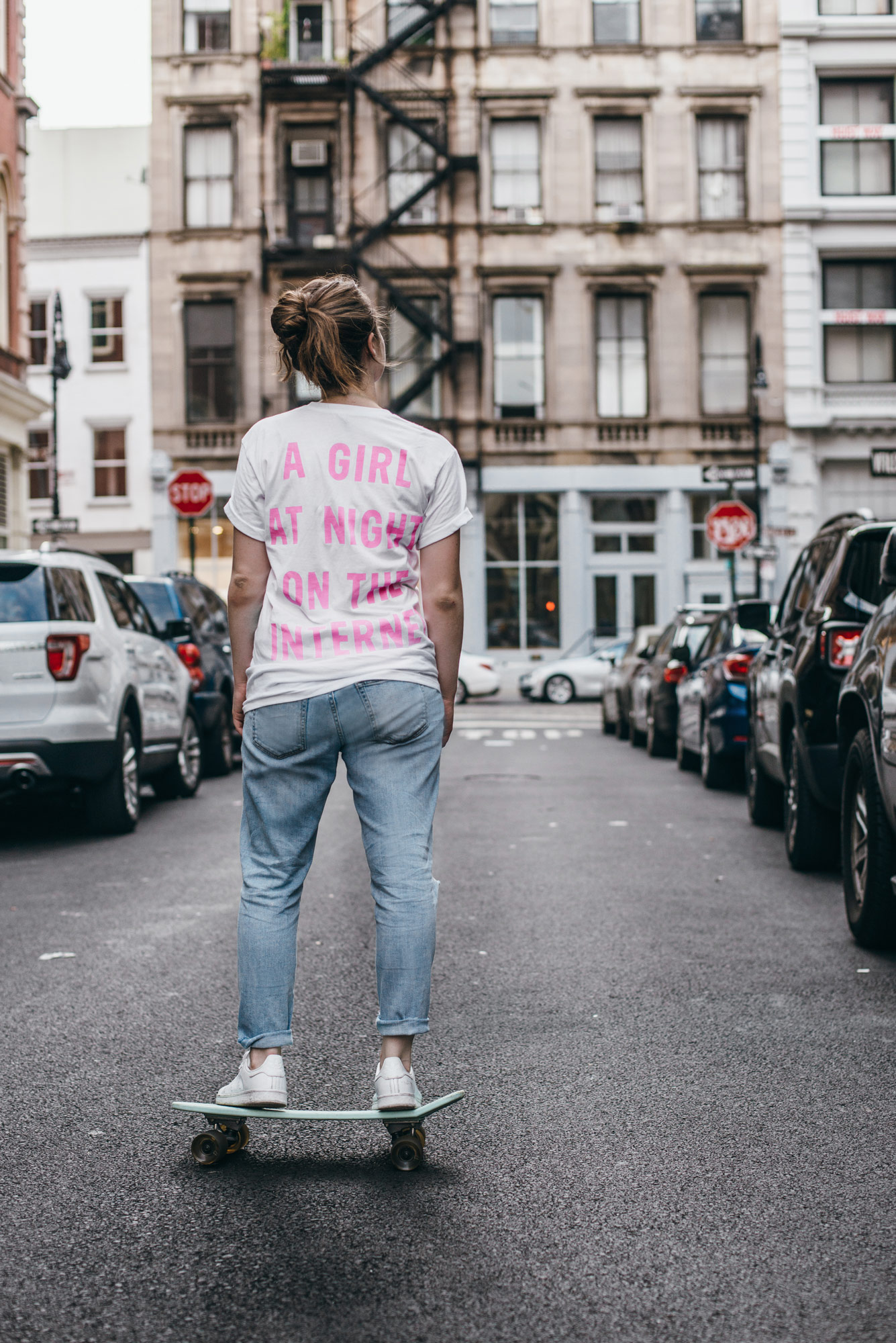
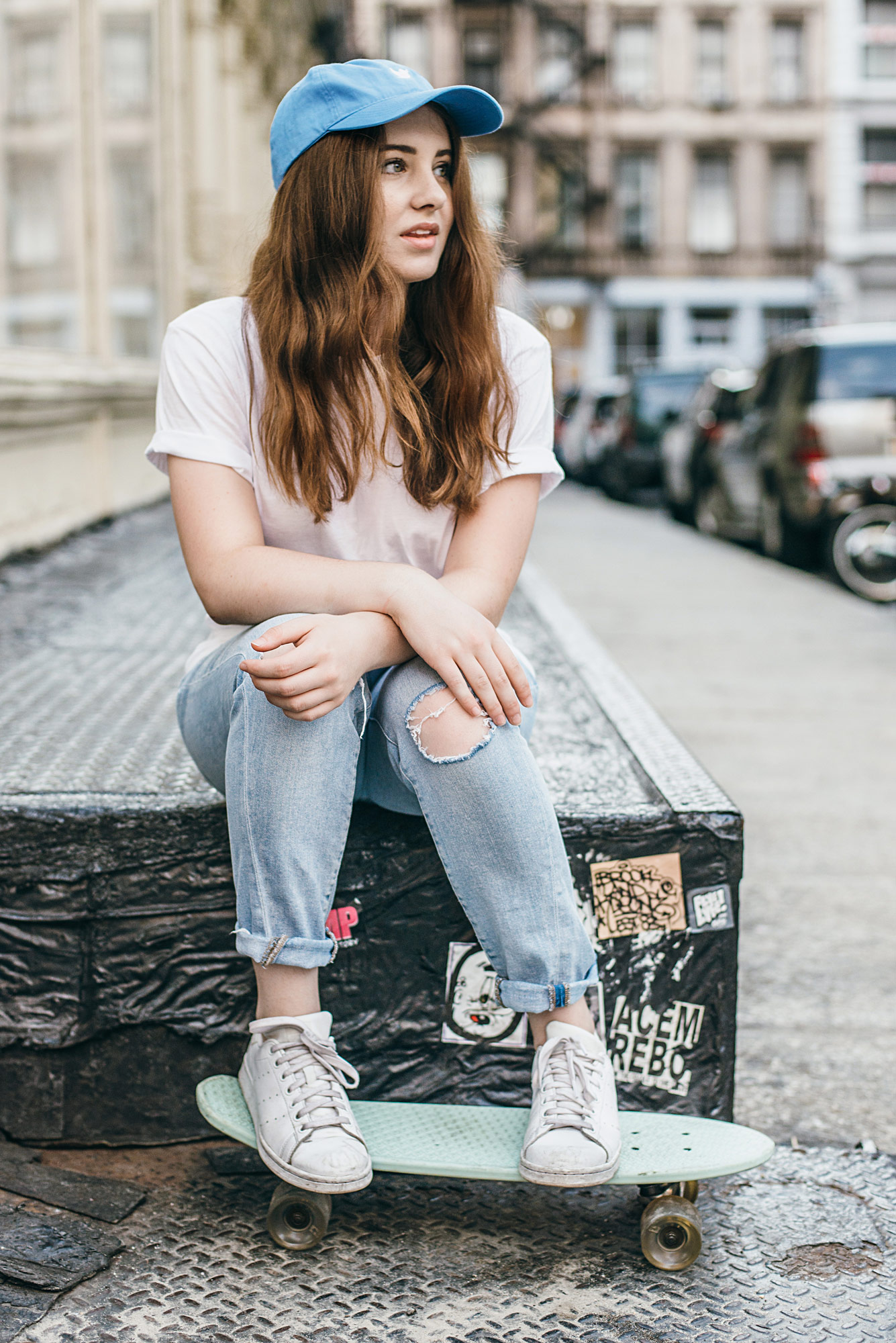
Earlier you said you were torn between doing the responsible thing and doing something creative. It’s interesting that it’s implied that choosing a creative career path is not responsible. What was that internal dialogue like when you were making the decision to either stay in college and finish your degree or drop out and pursue video? The moment I decided to move to Nashville was when I started playing with the idea of dropping out, which was crazy to me.
It started with a video of two of my favorite people on the internet who I now know through YouTube. I was watching a Casey Neistat video and his colleague, Gary Vaynerchuk, was on as a guest. They were discussing college. I had never heard of Gary, but I loved his energy. He flat-out said that if you know what you want to do in life and have the skills to do it, then there’s no point in paying thousands of dollars and going into debt for a college degree.
The thought entered my mind, “Wait, I’m my own person. I can make this decision and drop out of college.” That’s when the idea started brewing, but it took me six months to actually make the decision. I was on the phone with my mom about it every single day. I remember the first time I said to her, “What if I don’t go back next semester. What if I drop out?” I talked with her about the opportunities I had with video and she was supportive.
You know when people say you have to choose something you love to do, but also something that loves you back? I was waiting for that moment when I knew I was actually good enough at video to make a living off of it. When I had a little glimpse of that, I knew it was time to take the leap. Things were lining up and I had to jump.
The other thing is that I was 21 years old and I was already living for my plan B. That terrified me. I can’t put into words how much I hated college. It wasn’t productive to anything I wanted to do in life. It became so clear that I was setting myself up for this future that I didn’t want. If you’re not trying to shoot for your dreams at 21, then what’s the point? That’s when I decided to go for it.
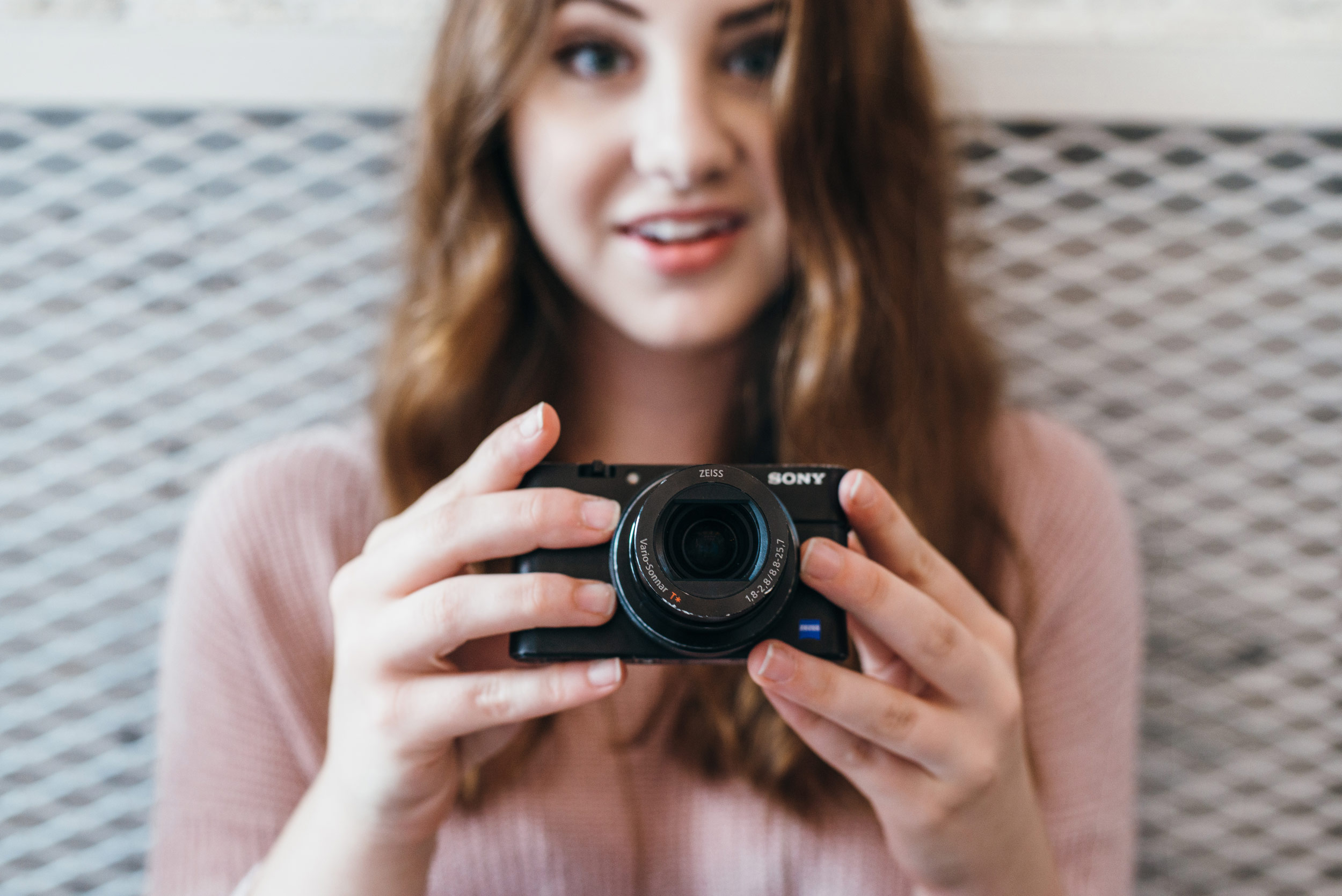
“…I was 21 years old and I was already living for my plan B. That terrified me…It became so clear that I was setting myself up for this future that I didn’t want. If you’re not trying to shoot for your dreams at 21, then what’s the point?”
You’ve been posting to YouTube since then, but you were also doing work that paid the bills. Talk to me about that. My parents have always told me that if I wanted something, I’d have to work for it. I’ve always been into that freelance life. I was a babysitter first, then I refereed basketball games, and I also gave guitar lessons. I’ve always found a way to turn what I like into a job.
With video, I went through a period of doing wedding videos, which wasn’t my favorite, but it paid. I also worked for my church for a year doing social media, and I did a lot of photography for them. I was upset that I didn’t get the job in the video department because I was a filmmaker. I didn’t care about social media. But after a year of being in that world, I learned so much. It made me love online content in general and it expanded my horizons.
We’ve interviewed filmmakers before, but I think you’re the first YouTuber we’ve interviewed. Tell me about the work you do right now. I do Creative Spaces TV, That Creative Life, and I vlog a few times a week. The nature of YouTube is based on the creator’s relationship with their audience. Vlogging is a way to build a relationship with viewers. It’s the purest form of reality TV, directly from the creator to the audience. I’ve been enjoying that.
Creative Spaces TV and That Creative Life are things I wanted to watch and see in the world. Creative Spaces TV was an idea that I had during the first year of college. I wondered why there wasn’t an MTV Cribs with substance that showed artists in their spaces. I wanted to see the process, the tools, and the spaces. So I decided to make it. The idea was two-fold: I thought it would be a dope series that people would like, and I hoped it would broaden my audience and create opportunities.
When I started posting Creative Spaces TV on my channel, that got the ball rolling. Creative Spaces TV is a mini docu-series that shows a day in the life of a creative—you get to see what they do and where they do it. That Creative Life is way more casual. I sit on a couch with an artist or entrepreneur and we talk about how to navigate creative careers. That comes out of my love for the business side of things. We talk about how to take what you love and make it a job, because that’s the dream, right?
“That’s the fun thing about being an artist. You’re an entrepreneur who is trying to figure out ways to do what you love and also make a living while hopefully helping people along the way.”
Yeah, that’s the dream and the challenge. When you’re starting out in any medium, the most overwhelming part is figuring out what to focus on. With Creative Spaces TV and That Creative Life, how did you determine what to focus on? For me it was about having that initial idea and going for it, but not being afraid to evolve and change. I already had Creative Spaces TV going, and it was great; it highlighted other people. The first few episodes of That Creative Life were just me. I wanted to share how I was navigating this crazy world and the lessons I learn along the way. That evolved into interviewing people so I could bring in other perspectives. It became another way to meet fantastic people and bring more value to my audience because my view on things is limited.
Let’s go back to the point when you quit college and decided to focus on video. You were doing work that wasn’t what you loved, but it paid the bills. How long were you doing that before you applied for Adobe’s Creative Residency, which you’re a part of this year? I’ll tell you the residency story because that happened right after I dropped out of college. I went to the Adobe MAX conference in 2015. It was my first time there, but I knew that the conference gave out expensive toys of some sort. I had a friend in LA to stay with, I bought the $300 plane ticket to fly there, and I knew they were going to give something away that I could sell on eBay to make back my money for the trip. So that’s what I did.
I went out to the conference alone, which was kinda scary, but I was determined to meet people. The first session I went to was about book publishing—I didn’t want to go to video-related sessions because I already knew how to do that. The person who was leading the session was Becky Simpson, who was one of the first creative residents. She prefaced her talk with saying she was an Adobe creative resident, and I thought, what the heck is that? You’re telling me that you get a year to create?
Becky is so sweet and funny. Her talk was amazing and we had some similar connections. I talked to her after, gave her my card, and asked to feature her on Creative Spaces TV. That night Becky tagged me in a tweet replying to an Adobe Community Manager who asked if there was anyone from Nashville there at the conference. I went and met Liz, the community manager from Adobe, and I was hired to do some freelance video work at one of their Creative Jams in Nashville. Then I road-tripped down to Austin and did the Creative Spaces TV feature on Becky. It was awesome.
When it came to my decision to drop out of college in December 2015, I knew the residency applications wouldn’t open up until after the New Year. I started sending in proposal vides before the residency applications even opened. I wanted it and pursued it hardcore.
During that time, I was pouring everything I had into my YouTube channel because I had dropped out of college and had more time. That’s also when I posted this video called “How to Casey Neistat A Vlog” and it went viral. I went from 3,500 subscribers to over 100,000. A lot of that was due to the video and me getting a shoutout from Casey Neistat himself. All of that happened as I was doing my final interviews for the residency. My world was exploding—in a good way!
“It’s so important to surround yourself with likeminded individuals who aren’t necessarily doing the same thing as you, but who have the same determination to get to where they want to go.”
For those who don’t know, the Adobe Creative Residency has allowed you the opportunity to focus on your work for an entire year without the financial stress of needing to take on client gigs to pay bills. I know you’re only three months into the residency, but what has it been like for you to have the opportunity to focus on personal work? It’s been huge. Video was always my side hustle, and I often stayed up until 3am editing. It was weird and amazing to take the thing I was used to doing on the side and make it my main job. I’ve taken it and ran with it. I’m trying to do as much as I possibly can. It’s unreal. It’s anyone’s dream job. You get a year to pursue your passion project. What?!
The residency runs through April 2017, so you have quite a bit of time left. What are your goals for the next nine months? I want to have a season of Creative Spaces TV that I can ship off to someone like HBO Go or Netflix—the dream would be Netflix, but they’re the cool kid right now. I want to show that it’s something people like to watch and make a case for it living outside of YouTube. I’ll always do YouTube, but I think Creative Spaces TV has the potential to reach new people on a more mainstream online platform. That’s my main goal: to have a well-rounded product to pitch. In order to do that, I want to step up the next season to make it more like a TV show by featuring more than one person per episode and making the show longer.
You’re on this very nontraditional, nonlinear career path. Does that ever scare you? At this point, no. It scares me more to think about what would have happened if I hadn’t dropped out of college? Dropping out of college was the best decision I ever made. What if I had went down this path of living for my plan B?
Pursuing any creative career or jumping into anything is scary, but throughout high school and college, I had been hustling toward making sure I had the knowledge and skills to be successful. I had been a student of all of these crafts so that when the time came, I felt prepared. Because I was doing all of the work up until that point, when I finally jumped, I was so ready and so thirsty for it.
The scariest part of having a creative career is that it requires people to care about what you’re doing. Can you keep their attention? With every project you put out, with every video you make, can you keep the attention of the people? At the end of the day, I’m confident in my ability to make stuff.
Right. In a creative career, you’re constantly problem-solving and re-evaluating. You can’t keep doing things the same as usual. Exactly. You have to be willing to adapt and change. People get messed up when they get nostalgic about the way things used to be. You can’t do that. You have to be willing to adapt and learn the skills to do so.
Is there any advice that you’ve been given that you’ve clung to over the years? That’s a big part of my journey—the lovely people who’ve helped me along the way. Can I talk a little about that—about the importance of community?
Yeah, go for it. It’s so important to surround yourself with likeminded individuals who aren’t necessarily doing the same thing as you, but who have the same determination to get to where they want to go.
Also, you never know what you’ll learn, the opportunities you’ll have, or the people you’ll meet from doing something. When I was all about guitar, there came a point when I didn’t want to spend my time making music anymore—I wanted to make videos. I had a lot of mentors in music and the things I learned in that world crossed over into the world of video, which I’m now working in. Sometimes people can hop around or move on too quickly from jobs. Do you know what I’m saying?
Yeah, there are so many transferrable skills you learn from jobs that you can take with you. Appreciate those lessons no matter what stage of your career you’re in. Don’t despise where you are just because it’s not where you want to be. Yeah. For students, in general, you’re not doing yourself a favor by only doing school. Working that job that’s less glamorous will allow you to meet people who you might wind up collaborating with ten years from now. So many opportunities have come out of the most random jobs I’ve had.
I speak with people who are in various stages of their careers. Some have worked for decades and reflect on how their careers have transformed. You’re a few years in and could be doing anything in 5 or 10 years. You have so many years ahead of you to do this work. My guess is that you won’t always be doing what you’re doing now in this exact form. What do you imagine for your future? That’s such a big question. I see video as the medium to tell whatever story I want to tell. And because I have such a close relationship with people on the internet, I’ll always be in that space. At the heart of it, I’m about documentary-style shooting and films, whether that’s documenting my own life or others’ lives.
However, as a creator and consumer of media, I have encountered so many problems that I think need fixing. I think I could contribute to solving some of these problems through starting a business or maybe even going the startup route. Why not try? That’s the fun thing about being an artist. You’re an entrepreneur who is trying to figure out ways to do what you love and also make a living while hopefully helping people along the way. With whatever means I can, I want to do that. I have a lot of hopes and dreams. We’ll see.
One thing I have learned is that you can’t plan your future out in detail because it’s always changing. If you would’ve told me two years ago that I’d be where I am today, I wouldn’t have believed you.
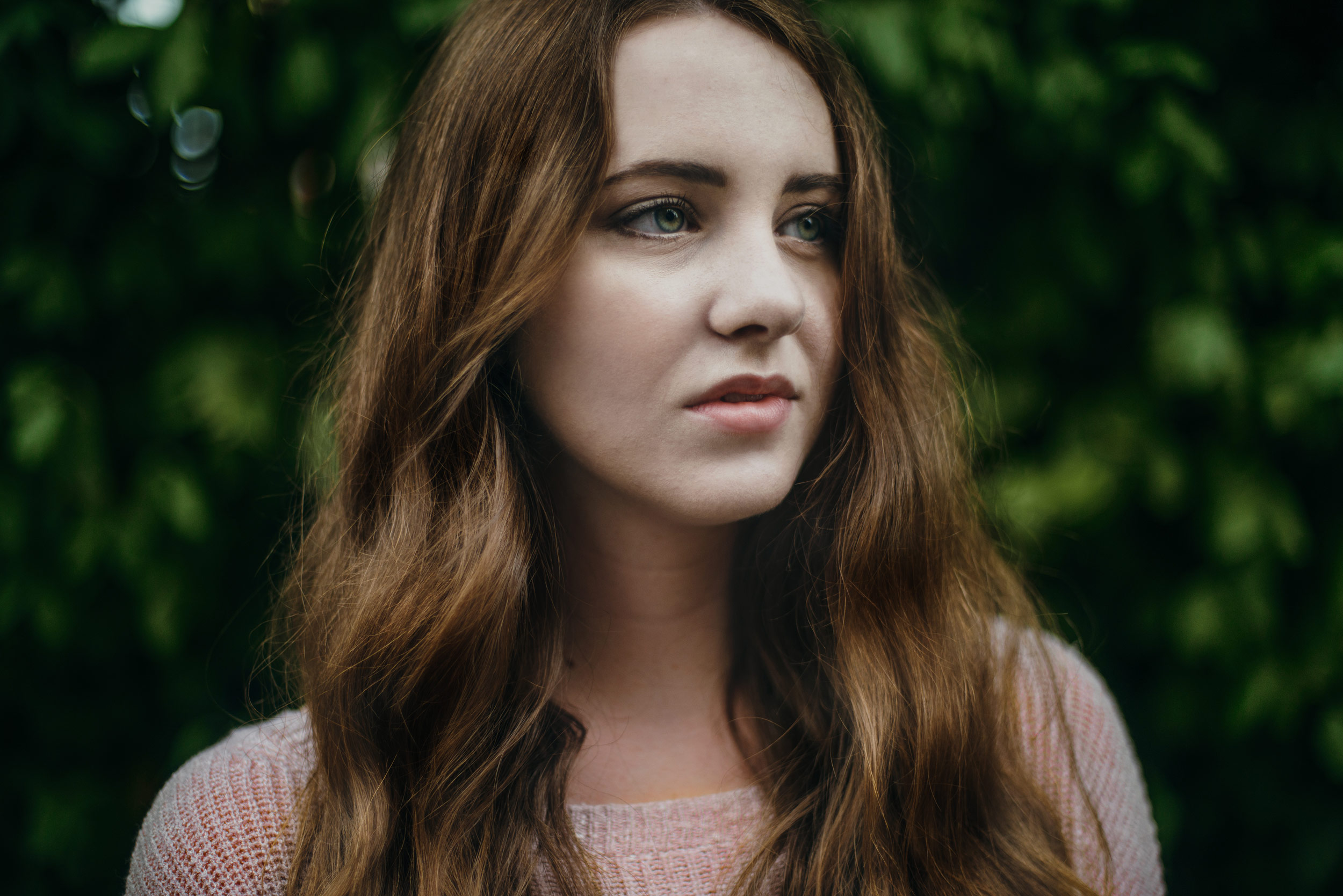
“You know when people say you have to choose something you love to do, but also something that loves you back? I was waiting for that moment when I knew I was actually good enough at video to make a living off of it. When I had a little glimpse of that, I knew it was time to take the leap.”